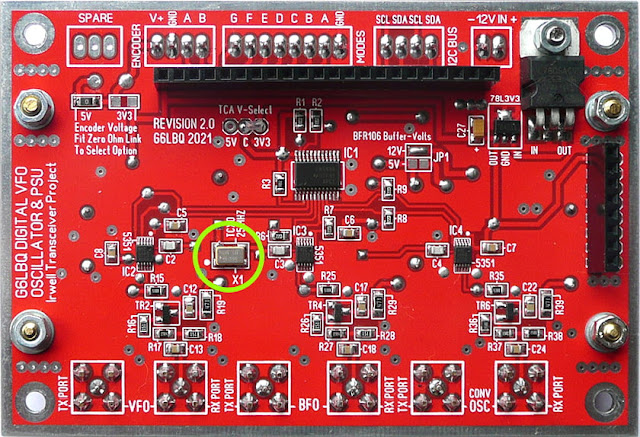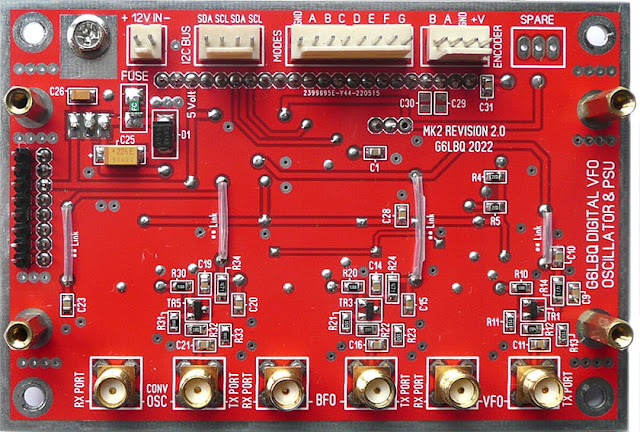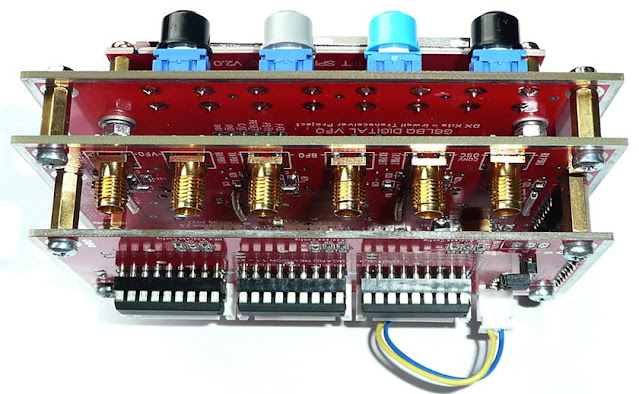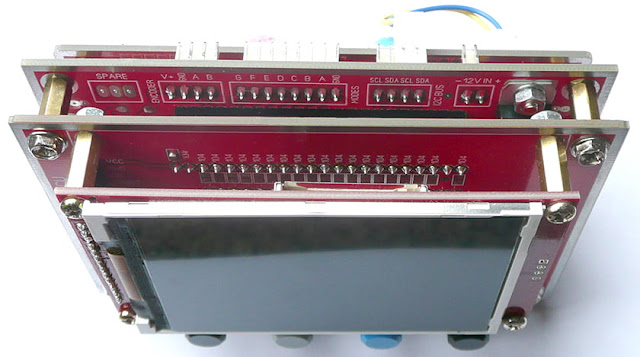For part 1 of revisiting the Digital VFO Oscillator module click here.
In the
last blog post, I looked at replacing the three 25MHz xtals that are used for reference clocks on the Si5351 ICs located in the the oscillator module of my digital VFO.
The mod/upgrade to a single TCXO (temperature controlled xtal oscillator) module was carried out and tested in a lash-up fashion with great success. In this blog post, I report on the fabrication of a new PCB that is TCXO ready!
A new revision 2.0 PCB was created paying particular attention to the location of the TCXO module and the tracks leading to each of the Si5351 ICs. The footprint of the six buffer amplifiers had to be reduced in size and I also used the opportunity to tidy up other areas of the PCB.
The image below shows a back view of the new PCB and I have circled the TCXO module for clarity:
 |
Actual PCB Size is 110mm by 75mm |
Next up is an image showing the top side of the new PCB:
 |
Actual PCB Size is 110mm by 75mm |
Here is the new oscillator PCB sandwiched between the display/MCU board and the I/O board.
Next, all of the PCB's that make up the VFO stacked together & viewed from the underside. The four push buttons will be fitted with extender shafts once I get to housing the project.
Finally a front view image of the VFO
A new schematic has been produced to reflect the changes to the oscillator module and is shown below.
 |
| Click to enlarge to full size! |
Since carrying out the TCXO upgrade to the VFO oscillator module, no issues have been detected and everything is working nicely.
I do not anticipate any further changes to the VFO hardware, though software changes and upgrades are in the works!
Project files are available via the Groups.io platform by joining my G6LBQ community group, where you can discuss my projects, ask questions and help others.
Joining my group is free. Just click on the button below.
Until next time...







Hello. good work, fresh ideas, I like the style. There is always something to think about. The 5351 is a nice chip. I made the dds on my own. What is little bit disturbing are the band-edge beats from processor or LCD. There are only few radios without birdies.
ReplyDeleteHow is the RFI with the larger tft? I use B&W graph, the spectrum is cleaner, but the display doesn't look like from Virginia secrets.. but OK. All the best